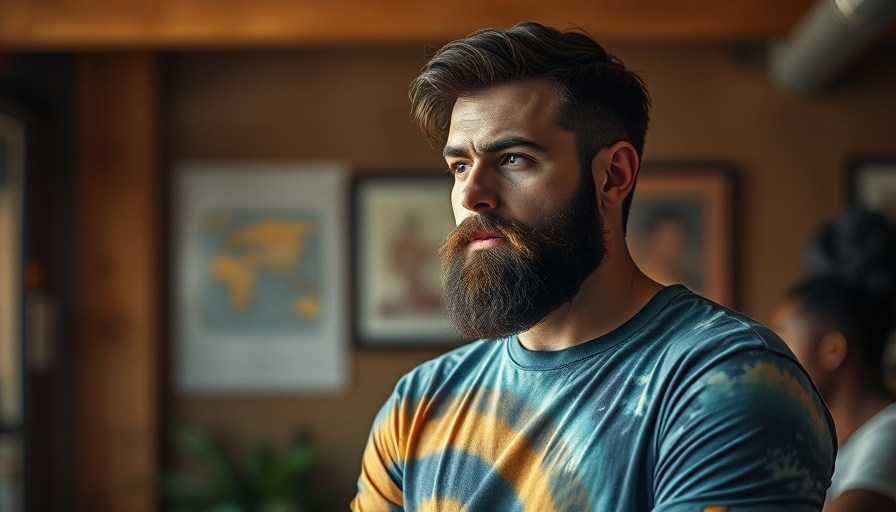
Shifting Paradigms in Intellectual Property
In a surprising exchange that set social media ablaze over the weekend, tech giants Jack Dorsey and Elon Musk publicly declared their desire to 'delete all IP law.' This phrase, succinct yet provocative, opens up a dense discussion about the contemporary landscape of intellectual property. The remarks come amid increasing scrutiny on how AI companies, specifically those involved in creating and training powerful models like OpenAI, navigate the murky waters of copyright and patent regulations.
The Context of the Conversation
The timing of this declaration cannot be overlooked. With numerous lawsuits looming over AI developers for allegedly infringing on copyright laws to train their algorithms, Dorsey's flat assertion highlights a growing sentiment in tech circles that current IP laws are not only outdated but detrimental to innovation. Musk's agreement with Dorsey adds weight to the sentiment; both have long championed disruptive approaches, challenging traditional business models and pushing the envelope of technological advancement.
Reactions from the Tech Community
Dorsey swiftly elaborated on his stance, asserting that existing IP laws favor gatekeepers and limit creative freedoms. He suggested that more innovative models to compensate creators exist and that the current structures often exploit rather than uphold artist rights. Critics, however, voiced strong dissent. Ed Newton-Rex, an advocate for ethical AI practices, admonished Dorsey and Musk’s comments as a direct threat to creators—individuals who rely on IP laws to protect their livelihoods. This divide encapsulates a tension that exists within the tech community: the clash between technological progress and creator rights.
Examples from the Past
The rift isn't new. Discussions on the inadequacies of IP laws have emerged regularly over the last few decades, particularly as the internet transformed how content is created and consumed. Businesses that thrive on user-generated content—like social media platforms—often find themselves grappling with the consequences of materials that can be easily shared and copied without attribution or compensation to the original creator. Dorsey’s advocacy for open-source initiatives and Musk’s history of 'patent giveaways' signify their long-held belief in a model that prioritizes access over ownership, but it also raises questions about the implications for creators.
Future Predictions: The Fate of IP in a Digital Age
As this conversation evolves, it’s inevitable that future discussions about the future of IP law will reflect the growing trend of decentralization—a hallmark of technological progression. The notion of what ownership means in a digital ecosystem where content goes viral before its creator has the chance to monetize could lead to significant reforms in the coming years. Will there be a middle ground where the rights of creators are respected while still fostering innovation without restrictive laws? This will be a primary point of inquiry for policymakers, artists, and tech entrepreneurs alike.
Impact on Policies and Practices
The idea that tech leaders are advocating for reformed IP laws as a way to innovate might also signal a complex relationship with regulation in the industry. Elon Musk, who famously declared, 'patents are for the weak,' illustrates a dangerous ideology that undermines the hard work and creativity of countless individuals. By potentially diluting the protection that IP laws offer, there is a risk of creating an environment where innovation overshadows artists' rights.
What It Means for Creators
The impacts of these provocative statements reach far beyond the sensational headlines. For artists, content creators, and even developers, this debate carries significant weight. Will their work continue to be adequately protected, or will they find their creations exploited in the name of freedom and innovation? The pushback from those within the community not only debunks the idea that IP laws are relics of the past but also affirms the necessity to protect artistic expressions in any technological framework that emerges.
A Call to Action for Thoughtful Discussion
The debate surrounding intellectual property is more than a simple binary choice between deletion or retention of existing laws. It's a conversation begging for innovative solutions that embrace both creativity and technological progress. Those within and outside the tech bubble must contribute their voices to shape inclusive policies that foster both artistic integrity and technological development.
In a future where AI continues to become ever more integrated into our daily lives, understanding and proactively moving towards an empathetic framework that respects both creators and innovators will be crucial. As the discussion unfolds, it is evident that all stakeholders must participate actively in shaping the narrative moving forward. The future of creativity in an AI-driven world hangs in the balance—and we all have a role to play.
 Add Row
Add Row  Add
Add 



Write A Comment